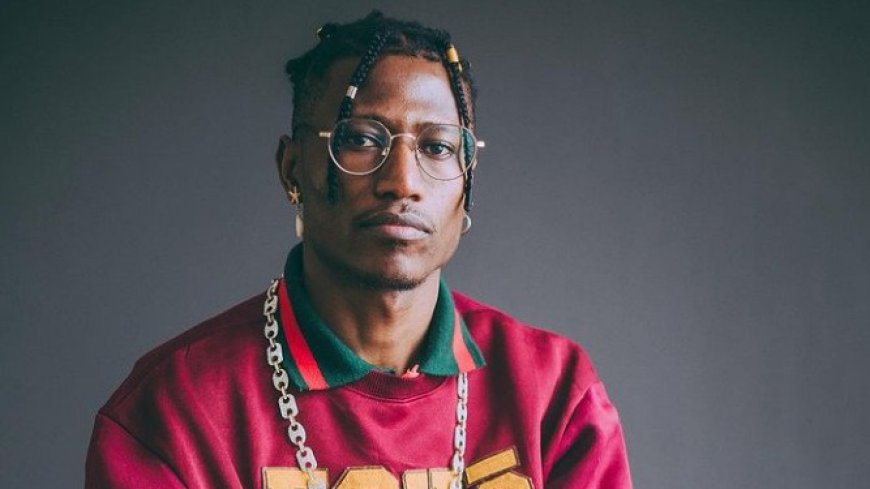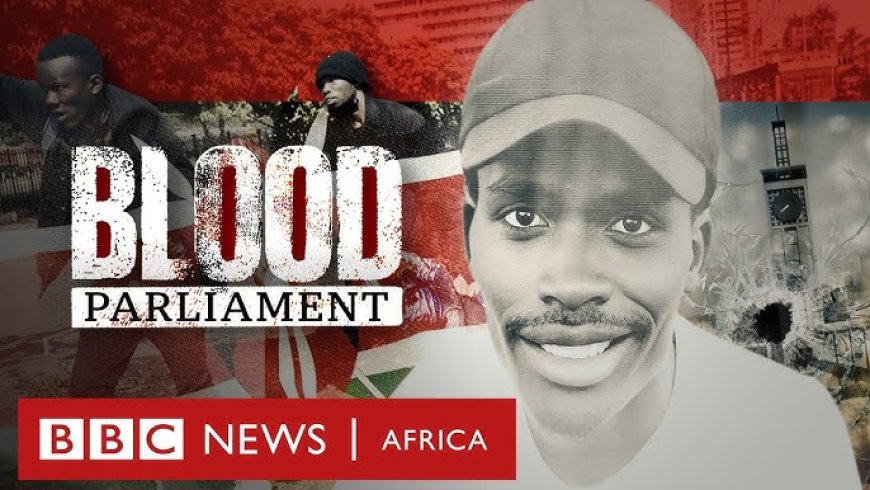Octopizzo Reveals Idea Top Kenyan Media House Rejected During Protests
He went on to caution the media that they risk being confronted en masse by Kenyans in the future.

Amidst huge traction generated by the damning British Broadcasting Corporation (BBC) Africa Eye exposé released on Sunday, April 27 uncovering little-known details of the June 25, 2024 protests, rapper Henry Ohanga alias Octopizzo has called out a leading media house in Kenya.
Without naming the media house, the Noma Ni hitmaker took to X on Monday, April 28, to reveal how his idea was pitched to the media house but never saw the light of day.
Octopizzo had suggested creating a space, be it online or otherwise, so that the protesters who were present during the anti-government protests could air out their views, as well as the parents and families of those killed during the Gen Z protests.
He revealed that he contacted two different top journalists, again whom he did not name, with that request, only to be informed that they were unable to consider it.

A photo of Kenyan journalists at a past event. /ARTICLE 19
"During the protests, I reached out to a leading media house, suggesting they create space to hear directly from the protesters, victims’ parents, and their families," he stated in part.
"I made this request on at least three occasions, to 2 different leading journalists but each time I was informed that all slots were fully booked until next year."
With this, Octopizzo added that he was of the view that the Kenyan media had a political agenda and aimed to satisfy the interests of the elite in society. He went on to caution the media that they risk being confronted en masse by Kenyans in the future.
"It is clear that much of the Kenyan media is politically aligned and often prioritises the highest bidder. Their time is also coming; we will be visiting those media houses soon," he warned.
Reacting to the documentary, Octopizzo lamented the lack of accountability on those revealed to be responsible for the shooting of unarmed protesters, pinning blame on the Judiciary by stating, "It makes you wonder if the judiciary, if the law itself, was ever real. We keep pushing technology forward like it’s everything, yet humanity and justice are rotting away even faster."
The 37-minute documentary covered the June 25 anti-finance bill protests, which resulted in over 60 deaths, has captivated the nation since its release, sparking varied reactions from Kenyans.
It included interviews with prominent figures like activist Boniface Mwangi, student journalist Allan Ademba, who reported from the protest frontlines, Law Society of Kenya (LSK) President Faith Odhiambo, and Embakasi East MP Babu Owino.
The exposé highlighted the deaths of at least three protesters, with an analysis of over 5,000 photos from the protests revealing that Kenya Defence Forces (KDF) officers were responsible for the shootings.
While responses have been mixed, most Gen Z protesters have expressed shock, reflecting on the tragic loss of their peers. "The BBC documentary touched me somewhere, man. To hell with this government and all it stands for. At least we know it isn't standing with its citizens," one X user stated.
"For the BBC to air such a documentary, after all this while and IPOA had not done anything, it is an indictment of IPOA. It is time that Kenyans asked if we need IPOA or not. They are a toothless organisation and a burden to the taxpayer," another lamented.
Lawyer Miguna Miguna recalled having relayed information about hundreds of innocent people killed in Githurai and cremated in Kahawa Barracks in June 2024 and called for investigations into the matter, noting, "At the very least, we must demand for an INDEPENDENT investigation and judicial inquiry into the brutalities committed by police, military, NIS, and Kenya Forest Service between 2024 and 2025. We need accountability and justice for the victims."
However, the documentary has not been taken kindly by some quarters, with Homa Bay Town Member of Parliament (MP) Peter Kaluma urging the government to revoke the BBC's licence in Kenya, citing its crucial role in shaping societal conversations and criticising the documentary for being twisted, partial and reckless, in his opinion.







